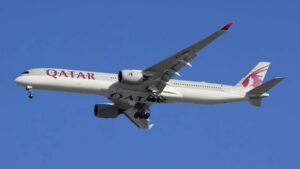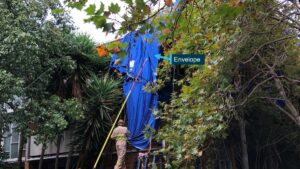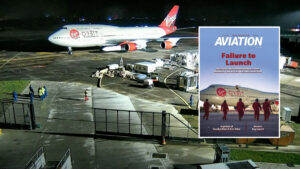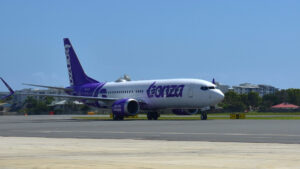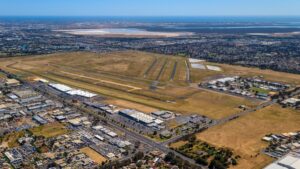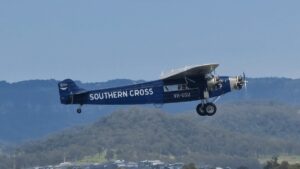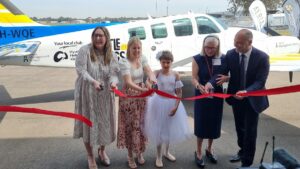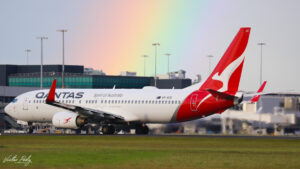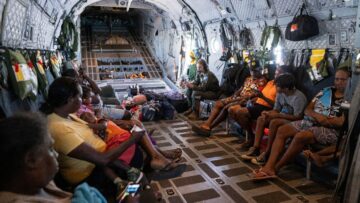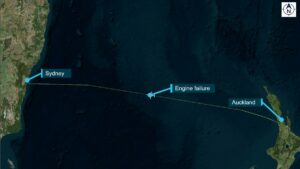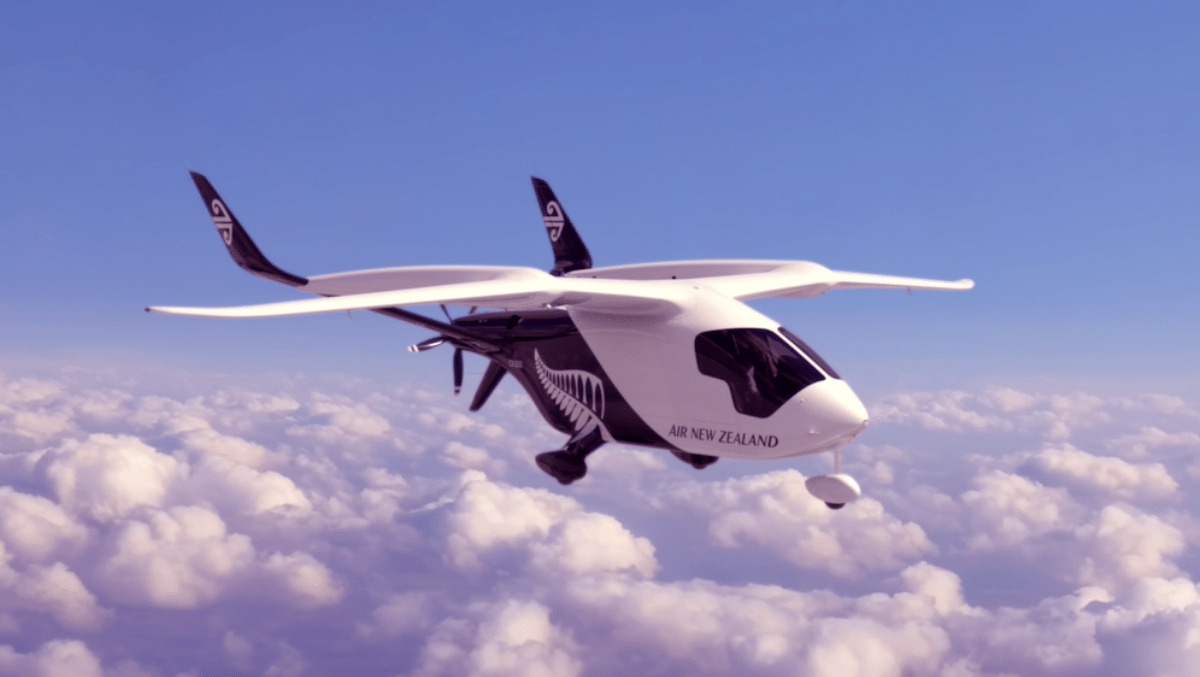
Air New Zealand has chosen the ALIA from electric aerospace company BETA Technologies as the first aircraft in its Mission Next Gen program.
The airline has selected the conventional take-off and landing (CTOL) version of the battery-electric aircraft for its fleet, with the first expected to be in service for cargo flights with NZ Post by 2026. Air New Zealand has a firm order for one ALIA, with options for an extra two and rights for a further 20.
ALIA is capable of speeds up to 270km/h, has reached ranges of 480km in testing, and can be fully charged in 40 to 60 minutes. Air New Zealand plans to initially operate it on routes of around 150km, at altitudes of between 1,500 to 3,000 metres and intends to announce the two frontrunner airports for basing the aircraft next year.
According to Air New Zealand CEO Greg Foran, the purchase is a “small but important step” in the airline’s plan to fly more lower-emissions aircraft domestically.
“Decarbonising aviation isn’t easy, and we have a lot of work to do. We need to accelerate the pace of change in the technology, infrastructure, operations and regulation,” he said.
“While this aircraft will add to, not replace our existing fleet, it is a catalyst for that change. By flying the ALIA, we hope to advance our knowledge and the transformation needed in the aviation system in Aotearoa for us to fly larger, fleet replacing, next generation aircraft from 2030.”
[embedded content]
The selection of the ALIA is the culmination of an 18-month evaluation process, with airports also being sought to trial the initial cargo route. The airline had also considered aircraft from Eviation, VoltAero and Cranfield Aerospace.
Kyle Clark, CEO of BETA, praised Air New Zealand’s commitment to decarbonisation, saying the airline is “hyper focused on bringing technologies to scale as quickly as possible”.
“Over the past year plus of partnership, collaboration, and diligence, we’ve seen Air New Zealand’s forward-thinking, yet pragmatic and methodical approach to innovation,” he said.
“We are gratified by the airline’s confidence in our technology as a solution that will meet their operational needs and look forward to continuing to work hand-in-hand as we bring the ALIA to market for 2026.”
Air New Zealand’s plans are on a similar schedule to Queensland regional carrier Skytrans, which wants to fly hydrogen-powered commercial planes by 2026, and Rex, which wants to retrofit electric engines to Saab 340 planes within the same timescale.
- SEO Powered Content & PR Distribution. Get Amplified Today.
- PlatoData.Network Vertical Generative Ai. Empower Yourself. Access Here.
- PlatoAiStream. Web3 Intelligence. Knowledge Amplified. Access Here.
- PlatoESG. Carbon, CleanTech, Energy, Environment, Solar, Waste Management. Access Here.
- PlatoHealth. Biotech and Clinical Trials Intelligence. Access Here.
- Source: https://australianaviation.com.au/2023/12/air-new-zealand-chooses-its-first-all-electric-aircraft/
- :has
- :is
- :not
- $UP
- 000
- 1
- 20
- 2026
- 2030
- 360
- 40
- 500
- 60
- a
- accelerate
- add
- advance
- Aerospace
- AIR
- aircraft
- airline
- Airports
- all-electric
- also
- an
- and
- Announce
- approach
- ARE
- around
- AS
- At
- Australian
- aviation
- BE
- being
- BEST
- beta
- between
- bring
- Bringing
- but
- by
- CAN
- capable
- Cargo
- Catalyst
- ceo
- change
- charged
- chosen
- collaboration
- COM
- commercial
- commitment
- company
- confidence
- considered
- content
- continuing
- conventional
- decarbonisation
- diligence
- do
- domestically
- easy
- Electric
- embedded
- Engines
- evaluation
- existing
- expected
- extra
- Firm
- First
- FLEET
- Flights
- flying
- focused
- For
- Forward
- forward-thinking
- from
- fully
- further
- Gen
- generation
- had
- Have
- he
- hope
- HTTPS
- image
- important
- in
- Infrastructure
- initial
- initially
- Innovation
- intends
- IT
- ITS
- knowledge
- landing
- larger
- launch
- Look
- Lot
- Market
- max-width
- Meet
- methodical
- minutes
- Mission
- more
- Need
- needed
- needs
- New
- New Zealand
- next
- next gen
- of
- on
- ONE
- operate
- operational
- Operations
- Options
- order
- our
- Pace
- Partnership
- past
- plan
- Planes
- plans
- plato
- Plato Data Intelligence
- PlatoData
- plus
- Post
- pragmatic
- Praised
- process
- Program
- programme
- purchase
- quickly
- reached
- regional
- Regulation
- replace
- rights
- Route
- routes
- s
- Said
- same
- saying
- Scale
- schedule
- seen
- selected
- selection
- service
- similar
- solution
- speeds
- system
- Technologies
- Technology
- Testing
- that
- The
- their
- this
- to
- Transformation
- trial
- two
- us
- version
- wants
- we
- which
- will
- with
- within
- Work
- year
- yet
- youtube
- Zealand
- zephyrnet

